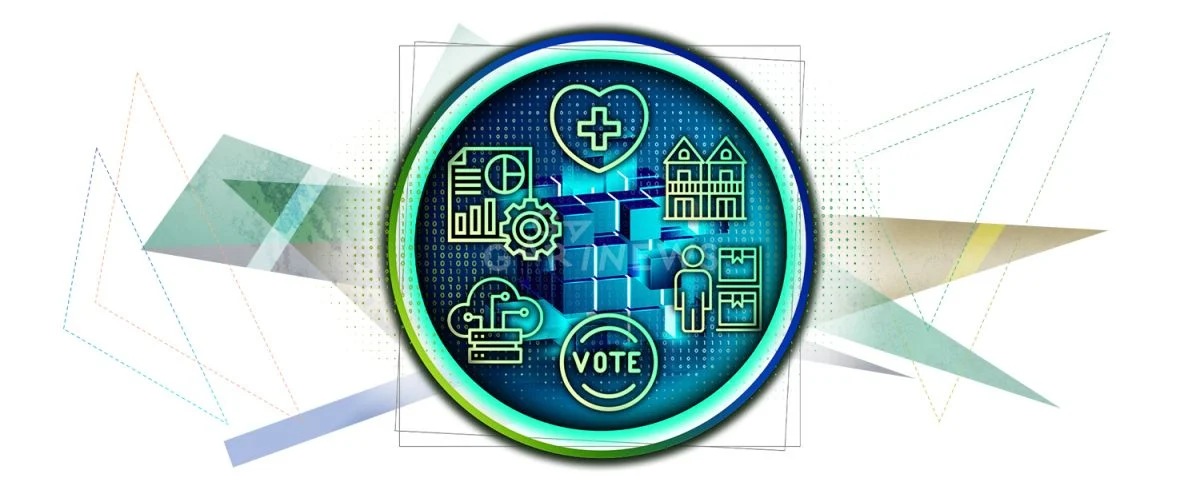How Blockchain Is Revolutionizing the Digital World
We are living in a time of opportunity, where cryptocurrencies and digital assets are shaping the future of our financial systems. Blockchain, the underlying technology behind these innovations, is not only revolutionizing the financial sector but also transforming the way we interact with the digital world. In this article, we will explore the intersection of blockchain and the metaverse, uncovering the potential it holds for creating new possibilities in our virtual experiences.
The Rise of the Metaverse
Before we dive into the role of blockchain in the metaverse, let’s first understand what the metaverse is. The metaverse is a virtual reality space where users can engage with a computer-generated environment and interact with other users in real-time. It is a collective virtual shared space, created by the convergence of virtually enhanced physical reality and physically persistent virtual reality.
The metaverse has gained significant attention due to its potential to redefine how we experience the digital world. From virtual reality gaming to immersive social interactions, the metaverse offers a boundless playground for creativity and exploration. As more individuals embrace this virtual realm, the need for a secure and decentralized infrastructure becomes crucial.
JetX: Experience Thrills and Win Big at the Online Casino
If you’re looking for an exhilarating Jetx Game online casino game that combines the best of skill-based challenges and traditional gambling, look no further than JetX. JetX is a game that takes the excitement to new heights, offering players a unique and immersive experience like no other. With its fast-paced gameplay, interactive features, and enticing jackpots, JetX is sure to keep you on the edge of your seat and craving for more.
What sets JetX apart is its ability to put you in control. Unlike traditional slot machines, JetX allows players to actively influence the outcome of the game. As you navigate your spaceship through a tunnel, your skill and strategy come into play as you dodge obstacles and collect valuable bonuses. This dynamic gameplay not only adds a level of excitement but also rewards your efforts with increased winning potential. The more points you accumulate, the higher your chances of hitting impressive jackpots. JetX truly combines the best of both worlds, offering the thrill of a casino game with the engaging elements of an action-packed adventure.
Blockchain’s Impact on the Metaverse
Blockchain technology has emerged as a game-changer in the metaverse ecosystem. Its decentralized nature, immutability, and transparency provide a strong foundation for building trust and security within the virtual realm. Let’s explore how blockchain is transforming the different aspects of the metaverse:
1. Secure Ownership and Digital Assets
Blockchain technology enables users to establish verifiable ownership of digital assets within the metaverse. Through the use of non-fungible tokens (NFTs), individuals can buy, sell, and trade virtual real estate, artwork, in-game items, and much more. The immutable nature of blockchain ensures that the ownership records are tamper-proof, preventing any fraudulent activities.
2. Transparent Transactions and Economics
In the metaverse, blockchain facilitates transparent transactions and economic systems. With blockchain-based smart contracts, users can define rules and conditions for in-world transactions, ensuring fairness and eliminating intermediaries. This creates a decentralized economy within the virtual world, where value can be exchanged seamlessly and transparently.
3. Decentralized Governance and Community Empowerment
Blockchain introduces decentralized governance models within the metaverse, allowing users to have a say in the decision-making process. By utilizing blockchain-based voting systems, virtual communities can collectively make important decisions regarding the development, policies, and direction of the metaverse. This empowers users and fosters a sense of ownership and community participation.
4. Cross-Platform Interoperability
Blockchain technology also offers cross-platform interoperability within the metaverse. With the use of blockchain protocols, users can seamlessly move their digital assets and identities across different virtual worlds. This enables a connected metaverse experience, where users can explore diverse virtual environments without being constrained by platform boundaries.
5. Enhanced Security and Privacy
The decentralized nature of blockchain ensures enhanced security and privacy within the metaverse. By utilizing cryptographic algorithms and consensus mechanisms, blockchain protects user data and prevents unauthorized access. This promotes a safe and secure environment for users to explore and engage within the virtual realm.
Conclusion
The convergence of blockchain and the metaverse holds immense potential for shaping the future of our digital experiences. With secure ownership, transparent transactions, decentralized governance, cross-platform interoperability, and enhanced security, blockchain serves as a catalyst for the development of a thriving metaverse ecosystem.
As we enter this new age of decentralized technologies, it is essential to stay informed and navigate the changing landscape carefully. The opportunities presented by blockchain and the metaverse are vast, and understanding their implications can empower us to make informed decisions and take advantage of what lies ahead.




















